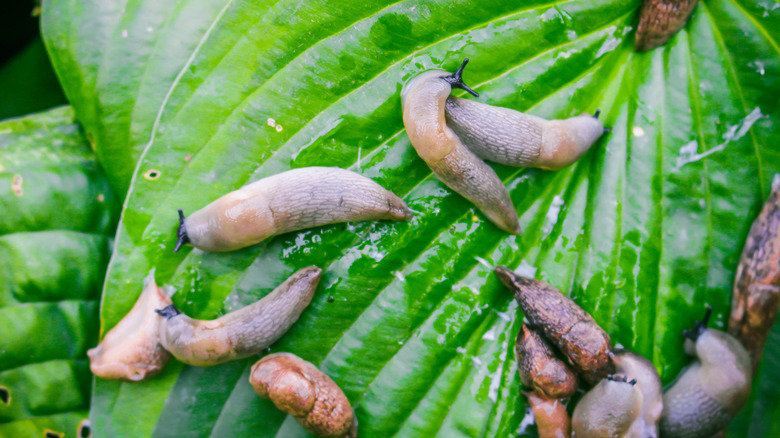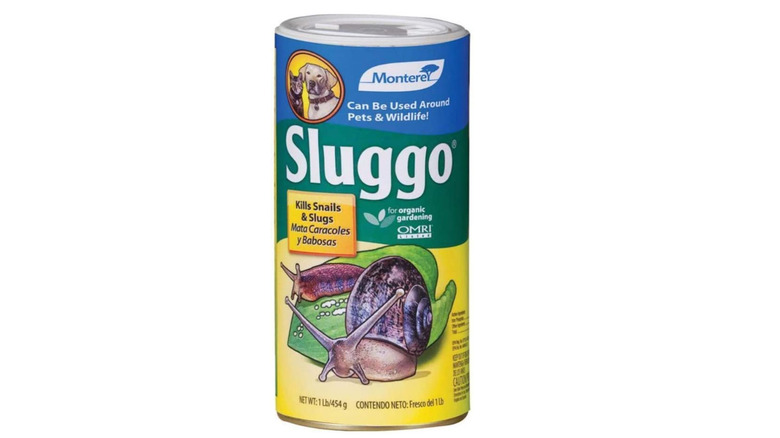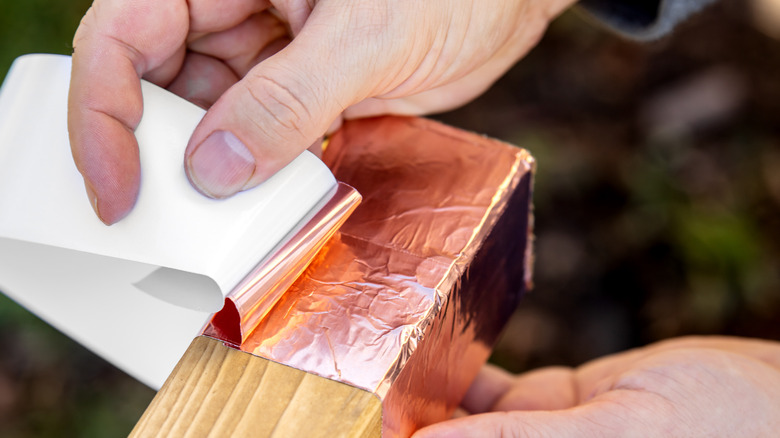Non-Toxic Ways To Keep Slugs From Damaging Your Hostas
We may receive a commission on purchases made from links.
With varieties available in many shapes, sizes, and colors, hostas are a lovely way to add color and texture to shady areas of your garden. Although there are not many pests that are attracted to hostas, those that are can do damage that is visible all season. Most cultivars produce all their leaves for the season within two months. That means that leaves damaged in the spring when tender leaves first emerge are not replaced later in the season. This damage gives you two options: Leave the unsightly foliage or remove the leaves and live with thinner plants.
To get the most out of your beloved hostas, preventing damage is the key, and that means knowing your enemy. For example, deer and rabbits are known to feast on them, but they do not make holes — they enjoy the whole leaf. On the other hand, if you see small holes in your hostas, the most likely culprit is slugs. Since these slimy pests thrive in shady, moist soil, the conditions in which these plants thrive are the same that attract slugs. Thankfully, if you take action early and stay diligent, you can prevent frustrating pest damage to your hostas.
Natural pesticides
Plenty of pesticides on the market will kill slugs, but not all are safe around other types of wildlife, pets, or children. Although broad-spectrum insecticides like Sevin are often used to control this pesky nuisance, they are not labeled for this use and are not very effective because slugs are not true insects. Instead, they belong to the Mollusca classification with fellow slimy family members: snails, oysters, clams, and some crustaceans. Since they are not insects, they require different pest control.
Iron phosphate-based pellets are exceptionally effective and easy-to-use products that you can find in most garden centers. Sluggo is a popular slug control product that is organic and safe for pets and other wildlife. Other brands are equally effective. Just look at the ingredients list to ensure the active ingredient is iron phosphate and that it does not include any other insecticides. These products work by acting as both bait and poison for slugs. They eat the granules instead of your hostas, eliminating the pest. Always use pesticides and insecticides according to the manufacturer's instructions.
Other slug management practices
Since slugs have soft bodies, there are other natural products you probably already have around your house to protect your hostas. For example, if you or someone you know has a sweetgum tree, the spikey balls they produce can be used as mulch around hostas to deter slugs. Crushed eggshells are another simple option to keep slugs away, and they add calcium to the soil as they decompose. Although it is sometimes referred to as a pesticide — because it does kill pests – diatomaceous earth is actually a natural silicone-based rock that is ground into a fine powder and is harmless to pets. This sharp powder slices and dehydrates tiny pests. It's brutal but effective. While coffee grounds are generally safe and good for the soil, be careful using them in an area where your pets have access. If eaten, coffee grounds can cause caffeine poisoning, which is a dangerous situation.
Do you want to keep slugs out of an entire bed without having to reapply any of the above options? Copper is a good deterrent because an unpleasant chemical reaction between the slug's slimy skin and the metal makes them avoid crawling over it. You can purchase copper tape to create a barrier around individual plants or a whole bed. Other copper deterrent options include a handy mesh that keeps squirrels and other digging pests out of your garden beds.


